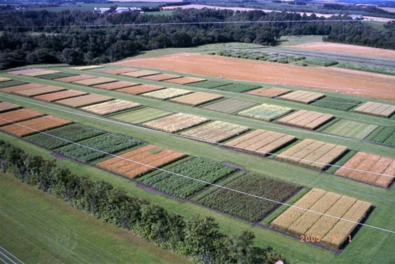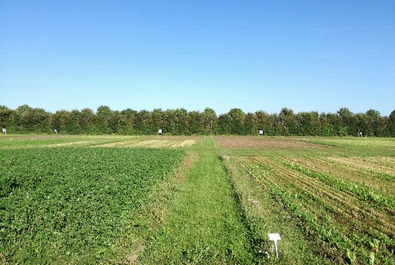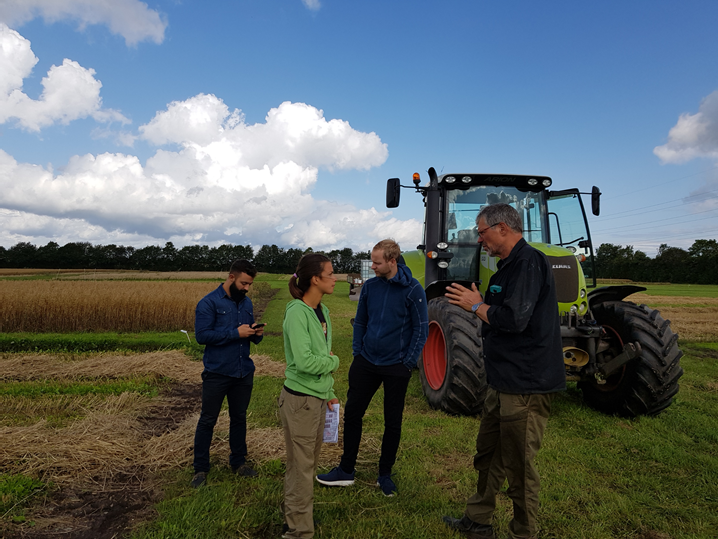CropSys - Long term experiment on organic and conventional arable cropping systems
Research Infrastructure
The experiment is based at the Department of Agroecology, Aarhus University (DK). It includes three experimental factors, has a factorial design, and is replicated in two blocks. The factors are: cropping system (organic with grass-clover ley, organic with grain legume and conventional with grain legume), with and without cover crops, and with and without manure in the organic systems. Crops include cereals (barley, wheat, rye and oat) and grain legumes (faba bean, pea, lupin).
Aim
The aim of CropSys is to explore the possibilities for increasing soil fertility, productivity, and efficiency of arable cropping systems, by adopting different agroecological practices.
History
- 1997: start of the long-term experiment
- 2005: a conventional cropping system is included (with same crop sequence as the organic system with grain legumes)
- 2011: ceramic suction cups are inserted underneath every plot – N leaching monitoring starts
- 2022: 25 years celebration – international workshop and start of living lab
Funding
National (e.g., through OrganicRDD program) and European projects.


Activities
- Crop diversification in time and space
- Different crop sequences with inclusion of grain legumes and ley
- Cover crops
- Intercropping
- Maintaining and improving soil health
- Reducing negative environmental consequences of agriculture
- Local production of plant-protein
Methods, stakeholder engagement and tools
Close collaboration with farmer advisory services, companies (e.g., for development of machinery and tools) as well as ICROFS (International Centre for Research in Organic Food Systems). Together with these stakeholders, we organize several field days every year, with focus on different aspects. CropSys is used as a research platform by researchers and students with different expertise and scientific aims, allowing a comprehensive assessment of long- and short-term changes due to treatments and environmental factors.
Achievements
- Long-term data collected in big database (which will be made more accessible)
- Established and new national and international collaborations
- Ensure funding through continuous grant application efforts

Further information
Field day in summer 2021 (the project CCRotate uses CropSys to investigate the effect of diversifying cover crops on production and ecosystem services): Youtube Video
Project CCRotate: Procejct website
Selected scientific publications
- Shah et al., 2017. Productivity of organic and conventional arable cropping systems in long-term experiments in Denmark. Link to publication
- De Notaris et al., 2018. Nitrogen leaching: A crop rotation perspective on the effect of N surplus, field management and use of catch crops Link to publication
- Hu et al., 2018. Soil carbon varies between different organic and conventional management schemes in arable agriculture. Link to publication
- Pullens at al., 2020. Legacy effects of soil fertility management on cereal dry matter and nitrogen grain yield of organic arable cropping systems. Link to publication
- De Notaris et al., 2021. Long-term soil quality effects of soil and crop management in organic and conventional arable cropping systems. Link to publication
Presentation:
- CropSys presentation, held at the 1st pilot network meeting
 tap and then scroll down to the Add to Home Screen command.
tap and then scroll down to the Add to Home Screen command.